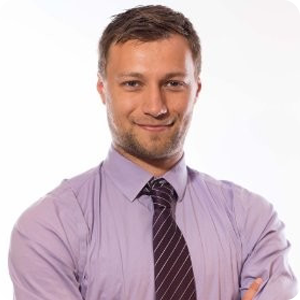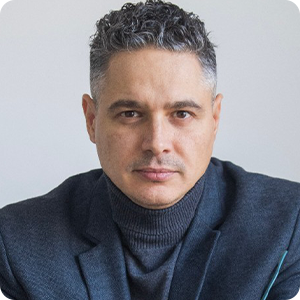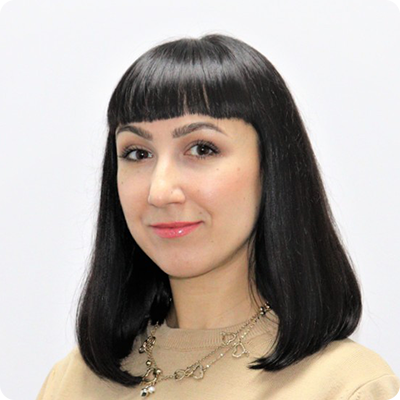Key takeaways from Davos 2023, violence derails youth’s future in the world’s youngest country and 11 months of war in Ukraine have disrupted education for more than 5 million children. Here is what you missed from last week’s headlines in the international development sector.
Key takeaways from Davos 2023
The World Economic Forum, which took place this year amid growing uncertainties and an economic slowdown, had a record number of participants. Among other topics, climate change, the war in Ukraine, and the economic downturn triggered extensive debates and discussions among global political and business leaders.
The World Economic Forum in Davos, Switzerland, held from 16 to 20 January 2023, brought together a record number of over 2500 participants. This year, the renowned annual meeting, with the theme “Cooperation in a Fragmented World”, took place amidst the ongoing global economic downturn and soaring inflation rates. Global political and business leaders gathered to discuss emerging economic, financial, social, ecologic, energy, and political issues.
Niger: Violence derails youth’s future in the world’s youngest country
Forced displacements and massive school closures have drastically increased the number of children out of school in Niger, threatening the future of a generation, highlights the Norwegian Refugee Council (NRC). Currently, 42 per cent of children are out-of-school, up from 34 per cent five years ago. This reverses the progress made in education in previous decades, in a country where half the population is currently under 15.
“Niger’s violence takes place among the poorest and youngest population on earth. It is upending 50 years of progress towards education, but is still neglected by the outside world” said Jan Egeland, NRC’s Secretary General, while visiting the country this week. “Around 900 schools have been closed by armed attacks and half a million children living in conflict zones in Niger are in urgent need of emergency education support. If the future of a country lies with its youth, much more must be done in the present to provide hope to the young that they will have education, employment, and protection of their human rights in Niger, and the rest of the Sahel.”
Since 2018, when violence overspilled from Mali and Burkina Faso, the Western region of Tillabéri has become the epicenter of attacks against civilians in the country. Over half of the civilians killed in 2021 were in Tillabéri, and its displaced population has quadrupled since 2018. The level of insecurity is so high that the region is home to 92 per cent of the total number of closed schools and half of the children in need of emergency education assistance in the country.
UNFPA appeals for $10.7 million to meet the urgent needs of 2 million women and girls affected by the economic crisis in Sri Lanka
The ongoing war in Ukraine has disrupted education for more than five million children, UNICEF warned, calling for increased international support to ensure children do not fall further behind. The impact of 11 months of conflict only compounds the two years of lost learning due to the COVID-19 pandemic, and more than 8 years of war for children in eastern Ukraine.
“Schools and early childhood education settings provide a crucial sense of structure and safety to children, and missing out on learning could have lifelong consequences,” said Afshan Khan, UNICEF Regional Director for Europe and Central Asia. “There is no pause button. It is not an option to simply postpone children’s education and come back to it once other priorities have been addressed, without risking the future of an entire generation.”
The continued use of explosive weapons – including in populated areas – has meant that thousands of schools, pre-schools and other educational facilities across the country have been damaged or destroyed. At the same time, many parents and caregivers are reluctant to send children to school due to safety concerns.
DevelopmentAid Editorials
USAID announces new $50 million development fund
USAID will be launching a new development fund to help attract private sector funding for global development, its Administrator Samantha Power announced on January 18, during the annual World Economic Forum held in Davos, Switzerland. Known as the Enterprises for Development, Growth, and Empowerment (EDGE ) Fund, it will be used by USAID to build “innovative and impactful partnerships” with private sector businesses.
Refugee statistics – overview
During the first few months of 2021, a massive number of individuals were forcibly displaced throughout the world with about 84 million people becoming victims of repression, conflict, violence, or human rights abuses. This figure was a 1.6 million increase from the previous year. However, the year 2022 added at least 6 million new refugees, including those from Ukraine and Yemen.
The data presented by the UN Refugee Agency prior to the conflict in Ukraine showed there were:
- Over 26 million refugees around the globe
- Over 50 million internally displaced persons
- Nearly 4.5 million people seeking asylum
What should a fair and effective tender process be like?
A tender is a formal request for bids on a project. It typically refers to the procedure wherein entities that intend to contract a supplier of goods or services request bids from interested stakeholders and expect them to submit proposals within a specific time frame.
The bidding procedure is governed by legislation or internal regulations in order to guarantee fair and efficient competition amongst the bidders. Indeed, companies who spend considerable financial and human resources to put together a potentially winning tender application expect the tender process to be fair and effective.
Here’s what else has happened
Hunger: The United Nations World Food Programme (WFP) Executive Director, David Beasley, arrived in Syria and appealed to the world to invest in the Syrian people and communities to get them on their feet and off food assistance. Following 12 years of conflict, an economy crippled by runaway inflation, a currency that has collapsed to a record low, and soaring food prices, 12 million people do not know where their next meal is coming from. Another 2.9 million people are at risk of sliding into hunger, meaning that 70% of the population may soon be unable to put food on the table for their families.
Feed Africa Summit: African Development Bank Group plans to invest $10 billion over the next five years to boost Africa’s efforts to end hunger and become a primary food provider for itself and the rest of the world, Bank Group President, Dr. Akinwumi Adesina, announced at the Dakar 2 Africa Food Summit in Diamniadio, east of the Senegalese capital of Dakar.
Security Council: Almost twelve years into Syria’s devastating civil war, the country remains tattered and deeply divided, facing massive economic hardships, limited political progress, and the world’s largest displacement crisis, with 70 per cent of the population in need of humanitarian aid, senior UN officials told the Security Council.
Malawi: Malawi is currently facing its worst cholera outbreak in two decades, with over 29,000 cases reported and more than 900 people dead. The Malawi Red Cross, in partnership with the International Federation of Red Cross and Red Crescent Societies (IFRC) and in-country partners—Danish Red Cross-led consortium and Swiss Red Cross—is scaling up its cholera response to assist over two million people.
Reports
UNODC global report on trafficking in persons: crises shift trafficking patterns and hinder victim identification
Fewer victims of trafficking in persons are being identified even as the COVID-19 pandemic and other crises are increasing vulnerabilities to exploitation, according to the latest Global Report on Trafficking in Persons launched by UNODC.
Africa’s economic growth to outpace global forecast in 2023-2024 – African Development Bank biannual report
Africa is set to outperform the rest of the world in economic growth over the next two years, with the real gross domestic product (GDP) averaging around 4% in 2023 and 2024. This is higher than projected global averages of 2.7% and 3.2%, the African Development Bank Group said in Africa’s Macroeconomic Performance and Outlook report for the region, released in Abidjan.
Events
Recruitment Challenges of 2022 and Trends for 2023 | Invitation to a Webinar
The International Rescue Committee (IRC) is among the world’s leading humanitarian relief and development organizations.
For 80 years, the IRC has been at the forefront of every major humanitarian initiative to assist people uprooted by war, persecution, or civil conflict. IRC staff go to the toughest places on the planet, implement both immediate response and long-lasting programs, and conduct the type of applied research and advocacy that the aid community needs to continually push itself to find better solutions for people.
The IRC partners with local governments and others to improve people’s health, education, safety, power and economic well-being. The IRC is operational in more than 40 countries and maintains more than 20 offices across the US with an annual portfolio of US$1.5 billion.
Whether you’re just starting out as an expert in the field of international development or are an experienced professional looking to expand your career opportunities, our webinar will walk you through exactly how the IRC and other international agencies recruit talent for their projects and teams.
Invitation to a Webinar
DevelopmentAid and the IRC cordially invite you to attend the webinar, Recruitment Challenges of 2022 and Trends for 2023, which will take place online on February 1, 2023 at 5 PM (Brussels time zone) or 8 AM Eastern (US Pacific time zone).
At the conclusion of the webinar, all logged-in participants will receive a certificate of attendance.
Key Takeaways
- Get to know more about IRC’s operations
- Learn more about the recruitment challenges faced by the IRC and DRS recruiters
- Discover how DevelopmentAid and DRS can help you with your recruitment needs
- The IRC’s expectations for 2023
Speakers
 Thomas Legois – Senior Recruiter, Global Proposal Recruitment at the IRC
Thomas Legois – Senior Recruiter, Global Proposal Recruitment at the IRC
- 14 years of international recruitment experience with international development and INGO organizations.
- Current Deputy Director for International & Proposal Recruiting with the IRC who he has been with since 2015.
- Manager of a team of 20 recruiting professionals based across all the IRC regions.
- Professional highlights also include deploying for the emergency response in Greece to help with the displacement of Syrian refugees when the IRC recruited over 200 professionals in about 2 months.
 Munib Khan – Senior Recruiter, Global Proposal Recruitment at the IRC
Munib Khan – Senior Recruiter, Global Proposal Recruitment at the IRC
Munib has over 12 years’ experience of human resources, business development, and international recruitment in the international development sector.
Munib began his career as an HR professional in the international development sector. Since then he has worked at the country, regional, and global level for various organizations including USAID and FCDO contractors. He has experience recruiting staff from entry-level to executive leadership roles.
Munib has led global proposal recruitment for the IRC since early 2021 where he recruits Chief of Party and Program Directors for IRC’s donor-funded projects such as USAID, FCDO, World Bank, GAVI, etc. His notable contributions include helping the IRC to secure over US$100m in 2022 in new business development.
 Sergiu Casu – Head of Business Development Unit at DevelopmentAid
Sergiu Casu – Head of Business Development Unit at DevelopmentAid
Sergiu joined DevelopmentAid in 2010 and has led its remarkable growth from a three-person start-up to over 200 employees today. In 2017, DevelopmentAid became the world’s leading information service provider in the field of international development.
Prior to joining DevelopmentAid, Sergiu worked for multiple international organizations and government institutions as well as in the private sector. During his career, Sergiu has visited over 30 countries for business-related activities. He speaks four languages fluently: English, Russian, Romanian and Italian.
 Marina Olari, Senior Client Manager at DevelopmentAid Recruitment Solutions (DRS)
Marina Olari, Senior Client Manager at DevelopmentAid Recruitment Solutions (DRS)
Marina is a Senior Client Manager at DRS and has a valuable track record of developing and sustaining relationships with institutional partners and initiating and maintaining strategic partnerships with NGOs, funders, and international organizations.
Marina offers administrative support to DRS clients including Save the Children, INTERSOS, the European Institute of Peace, and Friends in Global Health among others to ensure high-quality recruitment support to enable clients to grow their teams and positively impact the world.
Host
 Irina Bondarenco, Head of DevelopmentAid Recruitment Solutions (DRS)
Irina Bondarenco, Head of DevelopmentAid Recruitment Solutions (DRS)
How To Capture Business Opportunities Financed By The Multilateral Development Banks | Seminar
📅 7 February 2023 🕑 9 AM – 3 PM
Egmont Palace, Place du Petit Sablon 8bis, 1000 Brussels, Belgium
With the collaboration of the Regional Export Promotion Agencies (Flanders Investment & Trade, Wallonia.be and hub.brussels), the Belgian Federal Public Service Finance and the Belgian Federal Public Service Development Cooperation organize a seminar on February 7, 2023, entitled “How to capture business opportunities financed by the multilateral development banks (MDBs)?”.
Registration
Free entrance, but 25€ administrative fee for “no show” (you may cancel up to 72 hours before the event).
Deadline for registration: January 27th
How To Capture Business Opportunities Financed By The Multilateral Development Banks | Interactive Workshops
📅 8-9 February 2023 🕑 10.00 am – 4.00 pm (TBC)
FIT HQ, Kon. Albert II-laan 37, 1030 Brussels, Belgium
In addition to the free conference that will be held in the Egmont Palace on February 7th, FIT & hub.brussels invite you to some workshops on the World Bank and other MDBs (multilateral development banks) financed procurement at the headquarters of FIT on February 8th, 2023 and February 9th, 2023.
The workshops are targeted, hands-on, interactive and for a limited audience only (max 20 persons per day). As we make use of an external consultant with an office close to the World Bank HQ in Washington, we ask a registration fee for these workshops (200 € per person per day), which will be organized at Flanders Investment & Trade.
Registration
Registration fee per person per day: 200 € (400 € per person for both sessions).
- February 8, 2023, 10 AM – 4 PM: Introduction, strategy, where to find information
- February 9, 2023, 10 AM – 4 PM: Writing proposals (content, format)
Deadline for registration: February 1st.


